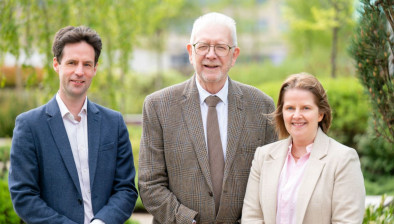Scottish Government pledges end to ‘stop start’ land reform

Scottish landowners will have to accept “the public responsibilities that come with that ownership” following the introduction of new land reform legislation.
Land reform minister Aileen McLeod pledged to end “the stop start nature of historic land reform” as she published new draft legislation to tackle the issue.
The Land Reform (Scotland) Bill contains “radical reforms to promote sustainability, fairness and transparency”, according to the Scottish Government, which claimed power on a manifesto backing “a review of Scotland’s land reform legislation”.
The bill is designed to ensure the issues of fairness, equality and social justice connected to the ownership of, access to and use of land in Scotland are given a permanent footing with the creation of a Scottish Land Commission.
The Scottish Government will be required to issue guidance to landowners on rights and responsibilities as well as responsible community engagement.
The bill would also give communities, both in urban and rural Scotland, a right to buy land to further sustainable development.
Other provisions of the bill include:
Dr Aileen McLeod said: “We cannot underestimate the crucial part land reform will play in contributing to the future success of communities across Scotland. Through the Land Reform Bill we want to ensure that future generations have access to land required to promote business and economic growth and to provide access to good quality, affordable food, energy and housing.
“The introduction of the bill is a significant step forward in ensuring our land is used in the public interest and to the benefit of the people of Scotland. It will also end the stop start nature of land reform in Scotland that has limited progress.
“Tackling the causes and consequences of inequality is at the heart of this government’s work.
“Land is one of our most valuable assets. Owning land can help realise the aspirations and potential of our communities, making a real difference to long-term sustainability, and building stronger, more resilient and supportive communities. Carluke Development Trust is a fantastic example of an ambitious local community who are trying to buy the town’s old historic mill and the land around it, to turn it into a community and tourist resource.
“At the heart of these proposals is the principle of responsibility that comes with all land ownership, and while there are many exemplary landowners in Scotland, the message is clear, it is no longer acceptable to own land in Scotland and not take the public responsibilities that come with that ownership seriously. I know this Bill will be good for the people of Scotland, encourage greater public interest and participation in land and help our communities reach their potential.”
David Johnstone, chairman of Scottish Land & Estates, said: “The publication of this Bill will result in fundamental and far-reaching changes to the way that land is managed and owned in Scotland.
“Land reform campaigners continually say that too much land is owned by too few people. In reality, this legislation will have an impact on tens of thousands of people across Scotland who own and manage all sorts and sizes of land holdings.
“We have been very disappointed that in this debate private landownership is pitted against community ownership and landowners are seen as being against reform. This is wrong.
“We support community ownership but dearly hope that as this Bill goes through the Scottish Parliament, the major social, economic and environmental contribution of private landowners is also recognised. There is plenty of room for all types of landowners and much can be achieved for rural Scotland if owners work together in partnership.”









